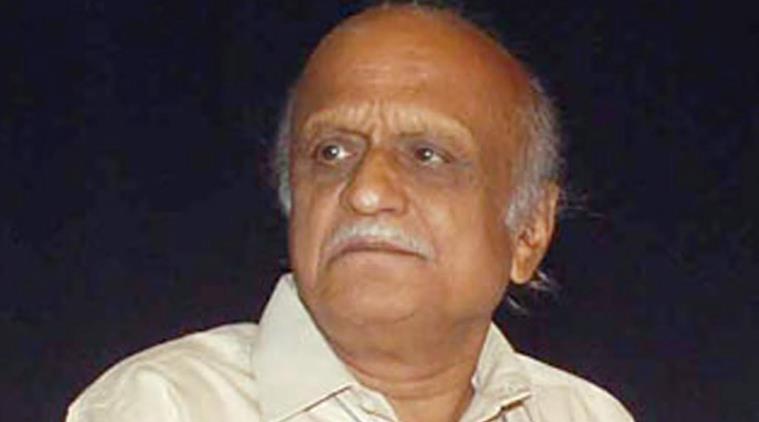 MM Kalburgi was shot dead at his residence in Dharwad by an unidentified gunman (File photo)
MM Kalburgi was shot dead at his residence in Dharwad by an unidentified gunman (File photo)
KANNADA SCHOLAR and writer M M Kalburgi, who was killed outside his home in Dharwad in North Karnataka on August 30, 2015, was reportedly targeted for a remark he made in June 2014, when he quoted Jnanpith awardee U R Ananthamurthy to say that urinating on idols would not attract divine retribution.
According to sources, Ganesh Miskin (27), one of two suspects arrested by the Karnataka Police CID for Kalburgi’s murder, has said that the 77-year-old scholar’s statement, made during a discussion on an anti-superstition Bill, was perceived as “anti-Hindu’’, and triggered the attack on him.
Miskin and Amit Baddi (28), both linked to a radical Hindu outfit, were arrested by the CID on September 15, after a Special Investigation Team (SIT) of the Karnataka Police probing the September 5, 2017 murder of journalist Gauri Lankesh (55) indicated their possible involvement in the Kalburgi case.
Both the youths are from the Hubbali-Dharwad twin city region in North Karnataka. They were earlier among 16 persons linked to radical Hindu outfits from Goa, Maharashtra and Karnataka who were arrested by the SIT in the Gauri Lankesh case. Both have a criminal record for involvement in communal violence in Hubbali area. Miskin had earlier given a similar account to the SIT.
Sources said that Miskin, in the course of his interrogation by the CID, revealed knowledge of the Kalburgi murder, but denied any involvement in the shooting. The duo were in the CID’s custody from September 15-28. In June 2014, while participating in a discussion on an anti-superstition Bill in Bengaluru, Kalburgi had, in an effort to promote rational thinking, quoted an essay written by Ananthamurthy in the 1990s in which he claimed to have urinated on idols as a child without attracting retribution. The speech was deemed to be offensive to Hindu sentiments and a case was filed against Kalburgi and Ananthamurthy for hurting religious sentiments by a resident of Bengaluru in July 2014.
Over a year later, Kalburgi was murdered by two unidentified persons, who rode a motorcycle to his home. One of them rang the doorbell, asked for the scholar and shot him at close range, while the other waited on the motorcycle at the gate. Following Gauri Lankesh’s killing last year, forensic analysis of the cartridges and bullets revealed that one 7.65 mm countrymade pistol was used in both the Kalburgi and Gauri Lankesh murders.
In July this year, Miskin and Baddi were arrested by the SIT probing the Gauri Lankesh case after investigations revealed that they were part of a group of radical Hindu activists — many were linked to the Sanatan Sanstha and its affiliate, Hindu Janajagruti Samiti — who allegedly planned and executed the murder of the journalist in Bengaluru. Miskin, who worked in an incense stick manufacturing firm in Hubbali, is accused of taking Gauri Lankesh’s shooter to her house on a motorcycle, while Baddi, who worked as a goldsmith, is accused of facilitating the getaway after the murder.
In August, the SIT, in a report to the CID, indicated the likely role of Baddi and Miskin in the Kalburgi murder case — including the possibilty of one of them being the shooter. The SIT also indicated that a former HJS activist, Amol Kale (37), who reportedly recruited the two youths among several others and provided arms training, was also possibly involved in the murder.
Some of the suspects arrested in the Gauri Lankesh case had earlier indicated that the journalist was targeted for her alleged “anti-Hindu’’ statements — including a 2012 speech in Mangaluru, which was re-circulated on social media in 2016, in which she said that Hinduism has no specific parentage and is merely an arrangement of social structure. Following the 2012 speech, a resident of Mangaluru had filed a case against Lankesh for hurting religious sentiments.
According to sources, a video of her speech was found on a computer in the possession of a suspect, Sujeet Kumar (38), a former activist of the Hindu Janajagruti Samiti, who was among those arrested for the journalist’s murder. The video was shown to youths recruited by the outfit to execute the murder, sources said.